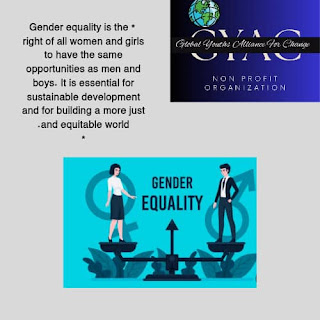Introduction
Africa, a continent of unparalleled
diversity and beauty, has been marred by a history of conflicts and unrest.
From civil wars and ethnic disputes to political turmoil and resource-driven
violence, Africa has faced numerous challenges on its path to stability and
development. However, it is essential to acknowledge that Africa is not defined
solely by its conflicts. Instead, it is a continent teeming with potential,
rich cultures, and a strong spirit of resilience. In this blog, we will explore
the importance of peace and conflict resolution in Africa and the ways in which
progress can be achieved.
The Cost of Conflict
Conflict, whether at the national,
regional, or local level, takes a devastating toll on African societies. It
disrupts economic growth, displaces millions, undermines development efforts,
and erodes social fabric. The human cost is immeasurable, as it leads to loss
of life, trauma, and deep-seated divisions within communities. It is high time
to break this cycle of violence and move towards a more peaceful and prosperous
Africa.
Understanding the Causes
To address conflicts effectively,
it is crucial to understand their root causes. Africa's conflicts often arise
from a complex web of factors, including:
1. Political Instability: Weak governance,
autocratic regimes, and a lack of political inclusivity can lead to power
struggles and instability.
2. Ethnic and Tribal Tensions:
Africa's ethnic diversity can sometimes become a source of conflict when
differences are not managed peacefully.
3. Resource Scarcity: Competition
over valuable resources like land, water, and minerals can trigger violent
disputes, especially in regions with limited access to these resources.
4. Economic Disparities: Widespread
poverty and inequality can breed frustration and resentment, fueling social
unrest.
5. External Interference: External
actors, such as arms dealers and neighboring countries, can exacerbate existing
conflicts for their own interests.
Strategies for Peace and Conflict
Resolution
1. Diplomacy and Mediation: African
nations should prioritize diplomatic efforts to resolve conflicts peacefully.
Regional organizations like the African Union (AU) play a crucial role in
mediating disputes and promoting dialogue.
2. Good Governance: Strengthening democratic
institutions, promoting transparency, and ensuring the rule of law are vital
steps toward reducing political instability.
3. Conflict Prevention: Early
warning systems, conflict prevention initiatives, and peacebuilding programs
can help address tensions before they escalate.
4. Economic Development: Fostering
economic growth and job opportunities can reduce poverty and address some of
the root causes of conflict.
5. Education and Reconciliation:
Education and awareness campaigns that promote tolerance, diversity, and
reconciliation can help heal wounds and build trust among communities.
6. Empowering Women: Women play a
crucial role in peacebuilding efforts. Their involvement in conflict resolution
processes should be encouraged and supported.
Success Stories
Despite the challenges, there have
been notable successes in peace and conflict resolution across Africa. For example:
1. South Africa's transition from
apartheid to democracy, led by Nelson Mandela, serves as an inspiring example
of reconciliation and peaceful change.
2. The Peace, Security, and
Cooperation Framework for the Democratic Republic of the Congo and the Great
Lakes Region demonstrates the power of regional cooperation in resolving
complex conflicts.
3. Ghana's peaceful political
transitions and stable democracy showcase the importance of good governance in
conflict prevention.
Conclusion
Africa's journey towards peace and
conflict resolution is ongoing, but progress is being made. It is vital for
African nations, regional organizations, and the international community to
continue supporting efforts to build a more peaceful and prosperous continent.
The cost of conflict is simply too high, and the potential for growth,
innovation, and cultural richness in Africa is too great to be overshadowed by
violence and unrest. By addressing the root causes of conflict, promoting
diplomacy, and investing in development, Africa can indeed move closer to a
brighter, more peaceful future.
©️ James Dabalen, Peace Scholar. Kenyan.
jamesdaballen@gmail.com
+254 714458927
https://www.linkedin.com/in/james-arara-dabalen-a7a649121/


















